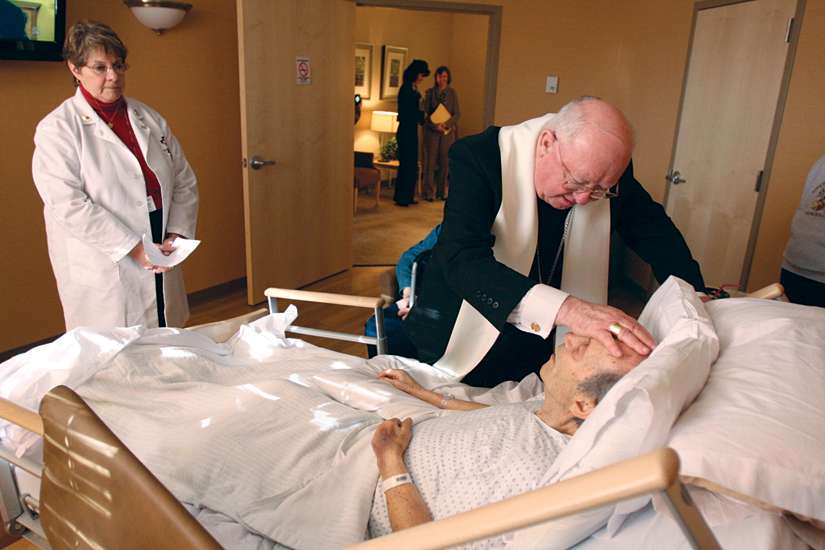“I don’t foresee the CCCB (Canadian Conference of Catholic Bishops) will be putting out guidelines, at least not at this point,” said Hamilton Bishop Douglas Crosby at the close of the bishops’ plenary Sept.26-30 in Cornwall, Ont. Instead, he sees various regions and dioceses issuing their own pastoral directives, much like the Alberta and Northwest Territories’ bishops have done. The change in the law is too recent, Crosby said, and many regional bodies have not met yet to consider their response.
Guidelines on access to various sacraments at end of life became an international discussion after the Alberta and Northwest Territories issued pastoral guidelines in September to help guide priests and pastoral workers on when sacraments such as Communion, Anointing of the Sick and Penance can be administered to those contemplating what the Church teaches is a mortal sin. It also deals with whether those who had died by euthanasia or assisted suicide can receive a Catholic funeral.
Mainstream news media have been quick to point out a difference in approach between the Western and the Quebec bishops on the issue. On Sept. 29, Quebec Cardinal Gerald Lacroix posted a message on Facebook saying he had no plans for any directive that would mean the refusal of pastoral accompaniment, the Anointing of the Sick or Catholic funerals for those who sought an assisted death. Lacroix wrote the Church wishes to accompany people at every stage of life and remind them of their unconditional dignity in the eyes of God.
“This is why we will opt for palliative care accessible to all rather than euthanasia presented under the name ‘medical aid in dying,’ ” he wrote in French.
“That the Quebec bishops might differ in some ways is understandable, because they’re two different parts of the country and maybe the reality is different,” Crosby said. “Also, the laws they deal with would be nuanced as well.”
Quebec has its own euthanasia law, slightly different from the federal law passed earlier this year legalizing assisted suicide.
While the Alberta/NWT bishops’ document also offered many guidelines on pastoral accompaniment, it did spell out when a sacrament must be denied or delayed if a person is persisting in pursuing an assisted death. The Quebec bishops have avoided this approach.
At a news conference from the CCCB plenary Sept. 29, vice president Bishop Lionel Gendron said the Quebec bishops face circumstances where the Church is represented as always being “contrary.” It is also facing a secularized society where euthanasia is viewed positively as a form of mercy.
That’s why the Assembly of Quebec Bishops published a document last December, before the Quebec “medical aid in dying” law came into effect, inviting people to reflect on what an assisted death is and to highlight the preferable option of palliative care, Gendron said.
Crosby said all the bishops agree on the “vital importance of palliative care” and treating every moment as precious in life, especially “these last moments because it’s such a significant passage.”
The plenary’s biggest event involved reflections on assisted suicide and euthanasia by Cardinal Willem Eijk, Archbishop of Utrecht, who shared the Dutch experience with these realities, and “the pastoral challenges it presents for the priests, deacons and pastoral ministers who are on the frontlines, who work with people who are considering these realities, who work with families who are left behind and all of that,” Crosby said.

